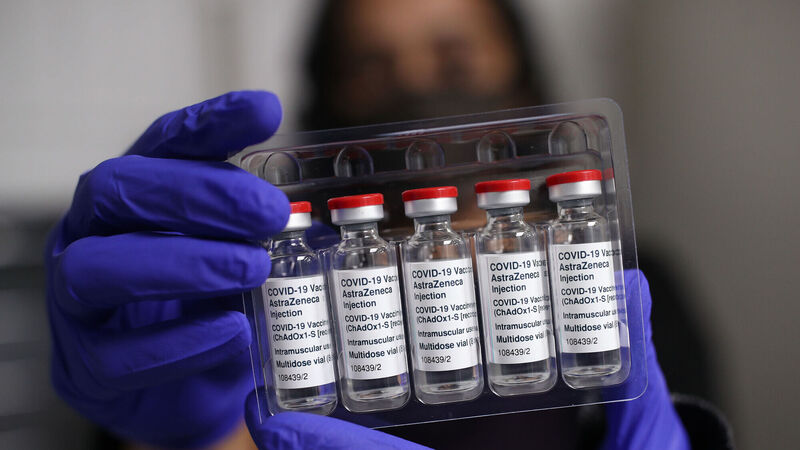AstraZeneca jabs decision a major hit to vaccine rollout

Thousands of AstraZeneca vaccinations scheduled for today have been cancelled after advice from the National Immunisation Advisory Committee. Picture: Yui Mok/PA Wire
The national vaccination rollout programme faces further significant delays following recommendations that the AstraZeneca vaccine should not be administered to the under-60s.
Thousands of vaccinations scheduled for today have been cancelled after the advice from National Immunisation Advisory Committee (Niac), creating a major administration headache for the HSE.










